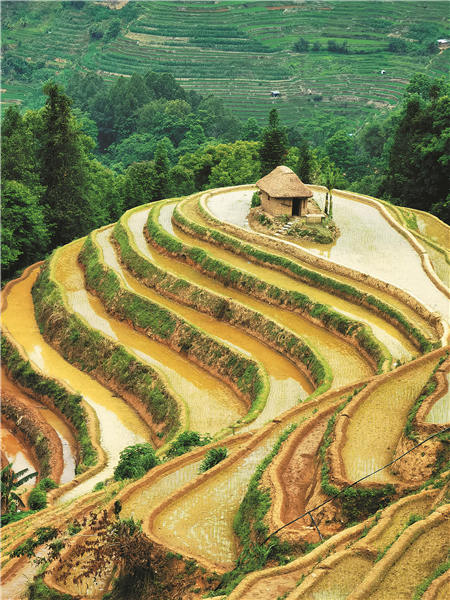

Sustaining local culture
Wu Canxi, a student at Sun Yatsen University, has seen remarkable changes in the lives of the villagers since she first came to the village to conduct a field study and survey in 2021.
Now, most locals can speak Mandarin, and some also speak a few words of English and use computers to settle accounts, Wu says.
She has provided advice for the tourism company's operation and training programs for the villagers.
Wu has got good measure of the plan that all the residents voluntarily devote themselves to, as they know that "it enables them to protect their culture while earning a living".
The plan is among Bao's many achievements that have won him the United Nations World Tourism Organization's Ulysses Prize for Excellence in the Creation and Dissemination of Knowledge in Tourism, which is awarded to a distinguished scholar for his or her outstanding contribution to creating and disseminating knowledge of innovative tourism.
"I received an email informing me of the prize from UNWTO in April," Bao says.
Bao is the first scholar from the Chinese mainland to receive the prize. He will attend the award ceremony in Uzbekistan in October and deliver a speech.
His Azheke tourism poverty alleviation project has been called a really beautiful way of translating a national aspiration into local efforts by the UNWTO.
"Receiving this award is a testament to the international recognition of China's overall level of tourism education and research," Bao says.
Bao has committed himself to internationalization of tourism research throughout his career.
Since 2014, Bao has worked with the Hong Kong Polytechnic University's School of Hotel and Tourism Management to stage an annual training session that lasts for seven to 10 days for doctoral students in the field of tourism management.
"Approximately 10 professors will be invited to give classes on topics related to their latest research, such as influential theories and methods," Bao says.
He considers it a great complement to the routine college curriculum, since better understanding of the world, such as things that matter to international guests, will help boost domestic tourism.
"We have invited scholars from all around the world and trained more than 500 students so far," Bao says.
This has had positive results, as the number and quality of student papers have both grown significantly in recent years.
Bao studied geography all the way from his bachelor's degree to his doctorate, which he says laid a solid foundation for his tourism studies, since it exposed him to the relations between nature and people.